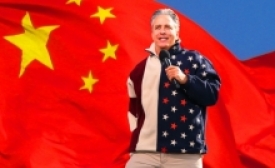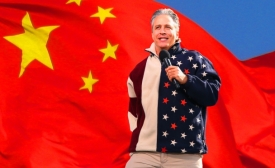china

An exclusive interview with Gudabaihua (谷大白话) on American late-night talk shows.
Considering the month of April alone, the State Department said it was "deeply concerned" about each of these situations: justice in Turkey; peaceful challenges of official Chinese policies; restrictions of freedom in Egypt; a Ugandan raid on a U.S.-funded medical facility; the humanitarian crisis in Burma and certain actions of the Republika Srpska, among other various and diverse issues — many extremely serious.
Mainland censors must have no clue about what they are censoring. They probably received instructions from higher-ups that some popular foreign TV series being shown online must be shut down as part of an internet campaign to clean up pornography and other undesirable contents. So to meet quotas, they randomly picked a few.
Twenty-five years is long enough to reflect on the real impact and consequences of an event. Unfortunately, for the Tiananmen Square protests of 1989, a major event that changed the country’s direction, one won’t find any discussion or reflection in the Chinese media.

An exclusive interview with Gudabaihua (谷大白话) on American late-night talk shows.
Yale University is creating a new Yale Leadership Center in Beijing that will host conferences, workshops, and other events developed by all of the university’s schools and programs. The center will open next fall.
President Barack Obama has said the US and Malaysia are at the start of a "new era of partnership", on the second day of his official visit. Obama was speaking at a state banquet with Malaysian King Abdul Halim Mu'adzam Shah. He is due to meet Prime Minister Najib Razak later. It is the first such visit by a serving US president for nearly 50 years.
In November 2011, Barack Obama told the Australian parliament that the United States was embarking on a major shift in its foreign policy—with a pivot to Asia. “After a decade in which we fought two wars that cost us dearly, in blood and treasure,” he said, “the United States is turning our attention to the vast potential of the Asia Pacific region.”







